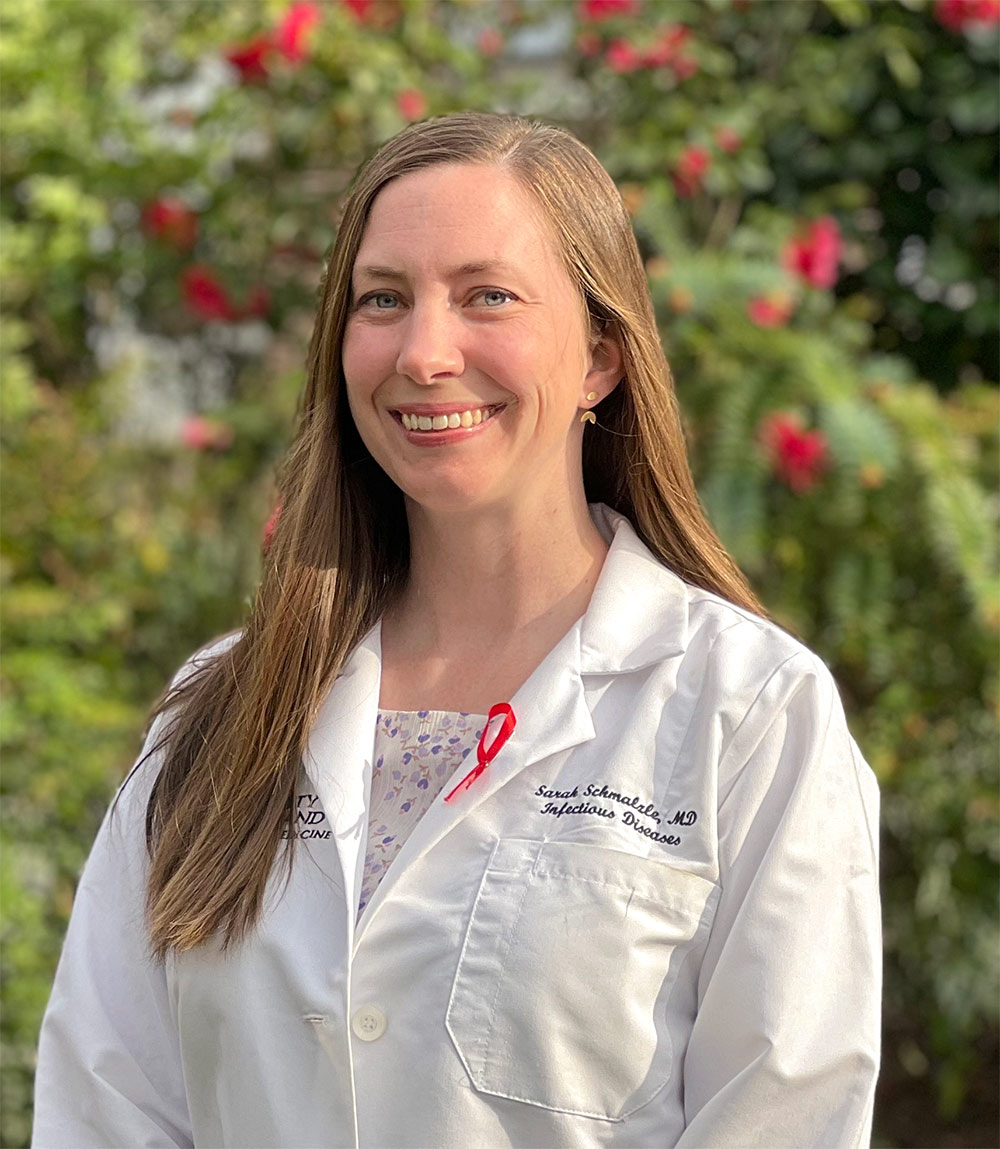PROFILE
Parallels
With her heart set on becoming a doctor, she studied cell biology and biochemistry and minored in philosophy. Then, her interest in social justice ignited through service-learning and advocacy programs at Bucknell — namely the Bucknell Brigade.
“In my first trip to Nicaragua, we understood the sociopolitical background, health care access and the environment before we got there. So it wasn’t just a moving experience — for most of us, it was the first time we really witnessed poverty. We understood why things were the way they were and how our country played a role. That experience just really wakes you up.”

It built the foundation for her work today.
Schmalzle is assistant professor of medicine and the medical director of the THRIVE program at the Institute of Human Virology (IHV) at the University of Maryland School of Medicine. “The institute has a massive global impact,” she says. “They’ve started one million people on HIV medicine in Africa and Central America, and now they’ve shifted to workforce development in those settings to have an even larger long-term impact.” She sees direct parallels between the IHV’s work and the Bucknell Brigade, with both initiatives finding success through relationships and connections with people who live in and understand local cultures.
Her program provides patient-centered specialty and primary care for more than 2,500 people living with HIV in Baltimore. “But it’s the social issues that put patients at risk for acquiring HIV and for poor outcomes,” says Schmalzle. That’s why THRIVE’s services include social workers, housing coordinators, insurance specialists and employment, mental health and substance abuse counselors. “Grants allow us to provide transportation, food assistance, nutrition and pharmacy services — everything we can possibly have in one spot.
“Unless you’re working in service and advocacy, you don’t realize how similar other resource-limited settings are to urban U.S. settings in relation to structural poverty, racism and lack of health care access,” she says of the evident parallels. “You can have expertise and passion and altruistic people, but if you don’t have systems set up to address problems, they persist.”
Schmalzle uses her passion and perspective to drive THRIVE’s mission. “It’s the foundation of what we stand for. Comprehensive health care systems. Together, Healing, Reaching, Inspiring to achieve Victory over illness and Embrace life.”